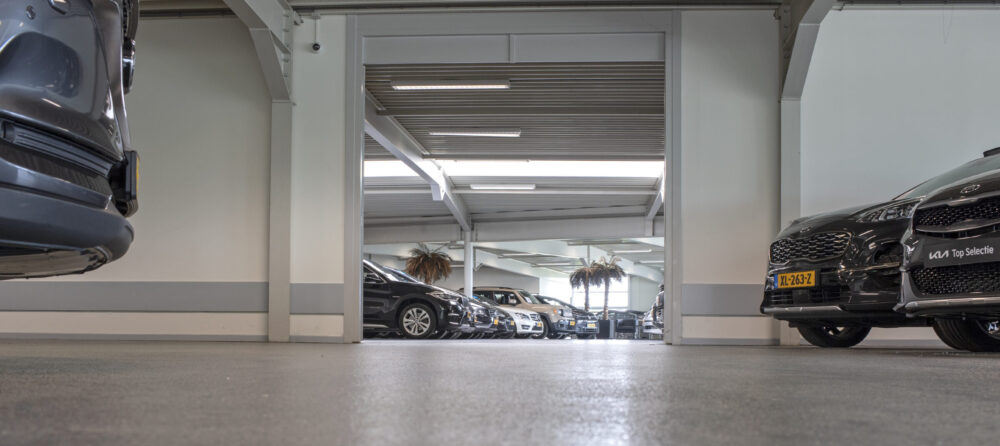Electric cars are becoming increasingly popular, but how exactly does the battery of an electric car work? In this blog, we explain how the battery stores energy, how a car’s power is determined, and how to get the most out of your battery.


Battery in the car
The battery in an electric car is a lithium-ion battery, similar to the one in your smartphone, but much larger and more powerful. The process works as follows:
- Charging: The battery charges via a charging station or power outlet, where the electricity is stored in the battery cells.
- Energy conversion: When you start the car, the battery converts the stored energy into electrical current.
- Powering the motor: The electric motor converts the current into mechanical energy, which drives the car forward.
- Regenerative braking: During braking, some of the energy is recovered and stored back in the battery.
How do you charge an electric car battery?
There are several ways to charge your electric car:
- Home charging: Via a wallbox or standard outlet. Convenient, but charging through a standard socket is slower and should only be used in emergencies, as it also results in higher energy costs.
- Public charging stations: Available in many locations and often faster than home charging.
- Fast charging: Allows for rapid charging, ideal for long trips. Some cars support fast charging up to 250 kW, which can recharge the battery in 20–30 minutes.
The charging speed depends on both the car’s and the charger’s power capacity.
What does kilowatt mean in cars?
Kilowatt (kW) is a unit of power that indicates the strength of the motor and battery. The higher the kW, the more powerful the car. For example:
- 50 kW – Suitable for small city cars
- 150 kW – For mid-sized cars with more power
- 300 kW of meer – For sporty electric vehicles
The battery capacity is expressed in kilowatt-hours (kWh) and determines how far you can drive on a full charge. A higher kWh value means a greater driving range.
How long does a car battery last?
Battery lifespan depends on several factors such as usage and charging behavior. Modern batteries typically last between 8 and 15 years before experiencing noticeable capacity loss. Manufacturers often offer warranties of 8 years or up to 160,000 km.
How to get the most out of your battery?
To maximize your battery’s lifespan and driving range, follow these tips:
- Avoid extreme temperatures: Cold and heat can affect battery performance.
- Drive efficiently: Use regenerative braking and avoid sudden acceleration.
- Don’t always charge to 100%: To preserve battery health, it’s best to keep the charge between 20% and 80%.
Battery recycling
Electric car batteries can be effectively recycled, with up to 90% of materials reused. A battery’s lifespan can even exceed that of the car itself, allowing it to be repurposed for other vehicles or home energy storage. According to EU regulations, at least 50% of a battery must be recyclable, which helps reduce the environmental impact of electric vehicles.


